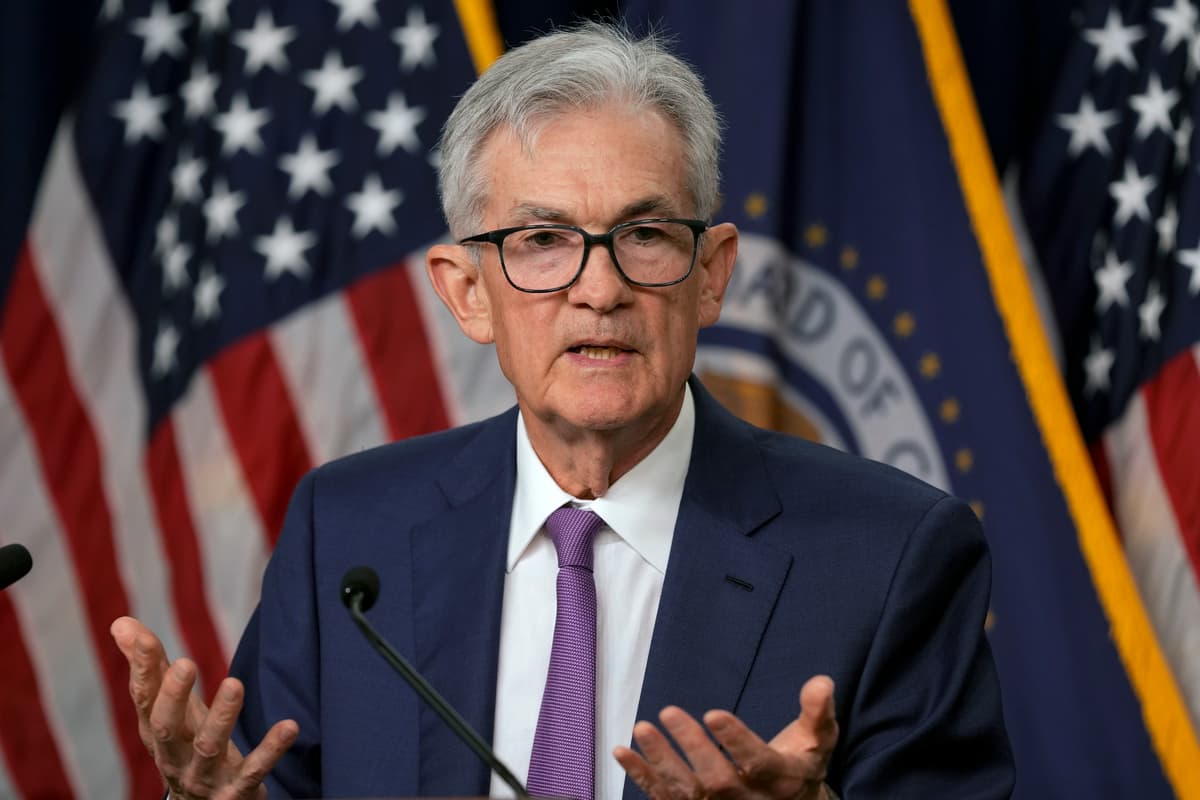Why Is the Federal Reserve’s Meeting in November Scheduled a Day Later Than It Would Normally Be Held?
The question of politics hovers over the central bank’s decisions between now and the election on November 5.

Those of us who predicted last December that the Federal Reserve would lower its target interest rate before this year’s presidential election in November could well be proven right. In all likelihood, the Fed chairman, Jerome Powell, will announce at least a 25-basis point cut on September 18.
This action would make investors happy. It would also signal “mission accomplished” on the inflation front and portend additional rate reductions coming later this year and into 2025. The Fed’s pivot to cutting interest rates may even be hailed as a validation of Bidenomics and boost the prospects for Vice President Harris.
Does that suggest that there is a political component when evaluating the impact of central bank decisions on the economy? It’s rude to question the independence of the Fed in formulating monetary policy and taking actions to raise or lower interest rates. A little thought exercise, though, may provide valuable context.
What if President Trump had replaced Mr. Powell in 2020 — legal restrictions notwithstanding — and gone on to win the election that year? If the new Fed chairman kept interest rates low throughout 2021 despite growing price pressures, voicing the notion that rising inflation was “transitory” due to temporary supply bottlenecks, pundits would surely have howled about the politicization of the Fed.
Or imagine an alternative scenario wherein President Trump replaces Mr. Powell as Fed chief, but then Joe Biden becomes the new President of the United States. In the wake of excessive fiscal spending and a Consumer Price Index reading of 9.1 percent in June 2022, the Trump-installed Fed chairman embarks on a steep rise in interest rates aimed at curtailing economic activity. Slower growth and softer labor market conditions “will bring some pain to households and businesses,” he (or she) acknowledges — unleashing accusations of economic sabotage from pro-Biden columnists.
So can we realistically admit that Fed decisions, as interpreted by the press, may have political implications?
Consider the current situation: The Commerce Department just revised its estimate of economic growth for last quarter to a solid 3 percent annual rate. Consumer spending, which accounts for roughly 70 percent of economic activity, rose at a 2.9 percent annual rate last quarter — up from the government’s initial estimate of 2.3 percent. The federal budget deficit will be $1.9 trillion for fiscal year 2024, according to the Congressional Budget Office, equal to 7 percent of gross domestic product.
The Fed’s preferred inflation measure, the Personal Consumption Expenditures price index, rose 2.5 percent in July over the prior year, exceeding its 2 percent target. Yet Mr. Powell has made clear that the Fed intends to provide easier money by reducing interest rates—starting in just over two weeks.
A skeptic might question whether this makes sense in accordance with earlier statements from Mr. Powell and with the Fed’s model for transmitting monetary policy. If the reason inflation has come down is because the Fed imposed restrictive interest rates that successfully quashed economic activity and reduced demand — what’s the explanation for 3 percent growth? Why is consumer spending so robust?
The way the Fed provides monetary stimulus is by cutting interest rates. The way the federal government provides fiscal stimulus is by spending more than it receives as revenues to the budget. Do we really need more of both?
It’s worth noting that the economic agendas of the two candidates running to occupy the White House next year differ significantly in assessing from where the nation’s economic strength derives — private sector innovation or enlightened government management — and how to further empower it.
President Trump emphasizes the need to reduce taxes and eliminate regulatory overkill to unleash the growth-generating power of creative entrepreneurship and free enterprise. Vice President Harris seeks to enlarge government involvement in the economy through subsidies for health insurance and $25,000 grants to first-time home buyers. She would raise taxes on corporations and launch a federal crackdown on businesses deemed to have engaged in price gouging.
Determining the impact of monetary policy on economic performance becomes particularly important when juxtaposed against these competing visions. If the best way to fight inflation is to increase supply rather than kill demand — and that is the most logical explanation for reduced inflation rates — the Trump plan is consistent with doing so through growth of the private sector. If the best way to fight inflation is to redistribute income through fiscal transfers and impose price controls, look to the Harris plan.
Mr. Powell will refrain with indignation from commenting on either approach — even as the Fed sets things up nicely for the pro-Harris movement at its September meeting.
Still, at the press conference announcing the Fed’s pivot to lower interest rates, will any journalist venture to ask Mr. Powell why the Fed’s meeting in November is scheduled to take place a day later than normal given that Tuesday, November 5, is not a federal holiday and early voting is available in all Federal Reserve district bank locations?
A prevaricating answer would speak volumes. It is easy to understand why Fed officials might consider it indecorous to be discussing monetary policy on Voting Day.
Because, you know, politics.
Ms. Shelton’s new book, ‘Good as Gold: How to Unleash the Power of Sound Money,’ will be published on October 8.

